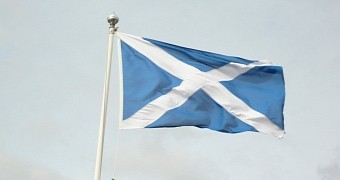Scotland’s citizens have a big question to answer today with a simple “yes” or “no.” While this may seem easy, this is the biggest question the Scots have had to answer in the past few centuries.
“Should Scotland be an independent country?” reads the question on the referendum ballots that over 4.3 million people have to answer.
Why is this happening?
If voters agree that Scotland needs to be independent from the United Kingdom, this will end a 307-year union.
The Scottish National Party, the one that’s been pushing for the country’s independence, won the 2001 Parliament elections by a landslide, which created the perfect setup for the referendum to be organized.
The government, led by First Minister Alex Salmond, believes that the Union of 300 years is no longer fit for the country’s purposes and that, as an independent nation, Scotland has the potential to be one of the richest countries in the world, mostly thanks to the big oil reserves.
They see Scotland’s tie to the United Kingdom as shackles to a country that could earn itself a better position in the world.
The opposition, both from Scotland and from the United Kingdom, believes that the UK is one of the most successful political and social unions so Scotland should stay where it is.
The polls show a split among Scotland’s voters, with half desiring a break from the UK and the other half wanting to stick to the original agreement.
If the Scots say “No” today, there are no plans for an additional referendum.
Who can vote?
It is expected that the historical vote that’s taking place today will have an equally historical turnout of 97 percent of the people who are registered to vote. There are 2,608 polling places across the country, which will be open until 22:00 on Thursday. Results are expected to be delivered on Friday morning.
There are many people that can vote in the referendum, especially since the minimum age for such events is 16 instead of 18. This means that people who turn 16 by September 18, 2014, can register to vote in today’s referendum.
The voting pool includes British citizens resident in Scotland, as well as Commonwealth or Irish citizens resident in Scotland. Members of the House of Lords residents in Scotland can cast their vote too, along with service personnel serving in the UK or overseas with the armed forces. Crown personnel serving outside the UK with Her Majesty’s Government who are registered to vote in Scotland can chip in as well.

 14 DAY TRIAL //
14 DAY TRIAL //